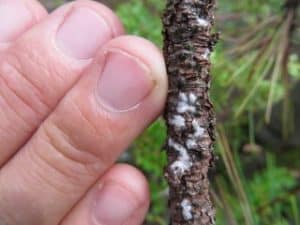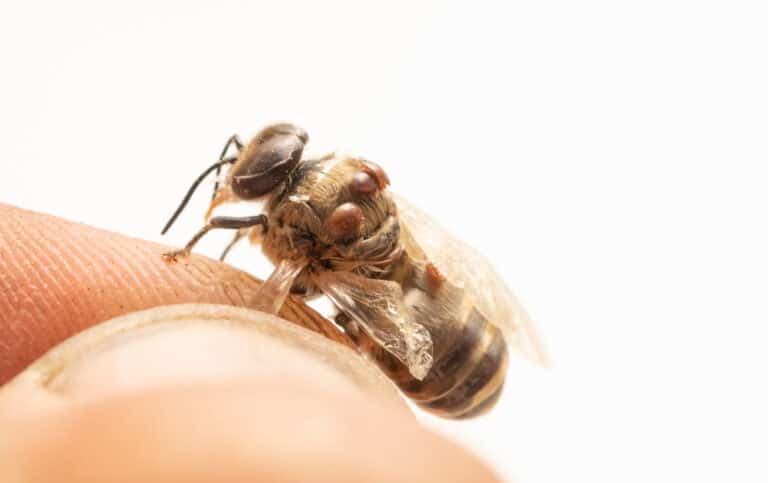Giant Pine Scale and its effects on Bees in Melbourne
Giant Pine Scale and its effects on bees in Melbourne. Recently, the beekeeping industry in Australia has come under serious threat due to the detection…
Giant Pine Scale and its effects on bees in Melbourne.
Recently, the beekeeping industry in Australia has come under serious threat due to the detection of Giant Pine Scale (Marchalina hellenica) in Melbourne and Adelaide.
Giant Pine Scale occurs naturally in the forests of Greece and other Mediterranean countries including Turkey and Italy. It feeds on the sap of pine, fir and spruce trees, causing dehydration and gradual dieback, and sometimes eventually the death of infected trees. Females lay as many as 300 yellow, oval-shaped eggs in spring. The larvae hatch after about 20 days and progress through a number of instar stages as they mature. Adult females are bright yellow, wingless and measure up to 12mm in length. Males are winged, but rarely seen. Giant Pine Scale lives in crevices in the bark and is most common on the lower parts of tree trunks, although it may also be found on branches and exposed roots. The insects produce a distinctive white, waxy, cotton-like secretion which may be easily observed on affected trees. In addition, a black sooty mould may be evident, as this grows on excreted honeydew.
Giant Pine Scale was recorded for the first time in Australia in late 2014 in Melbourne and Adelaide and has been found in Aleppo Pine (Pinus halepensis), Monterey Pine (Pinus radiata) and Stone Pine (Pinus pinea). Initially, about 500 trees in Melbourne’s eastern suburbs of Mt Waverley and Harkaway were discovered to have been damaged. This number quickly rose to 992 infested trees, as the pest was found to have spread throughout the Melbourne hills to Healesville. In late 2015, insects were found outside of the Restricted Area near Tyabb, southeast of Melbourne. The current Restricted Area includes suburbs within the municipalities of Monash, Casey, Yarra Ranges, Maroondah, Cardinia, Knoxfield, Stonnington, Booroondara, Kingston, Whitehorse, Greater Dandenong and Bayside. Potential host material must not be removed from the Restricted Area without a permit. Giant Pine Scale has not been found in other areas of Victoria.
In Europe, Giant Pine Scale plays an important role in the production of honeydew honey – so much so that the Greek Ministry of Agriculture artificially inoculated some forests with the insects. Honeydew is a sugary liquid secreted by aphids and some scale insects as they feed on sap. This is then collected by honey bees, which in turn produce a dark strong honey (honeydew honey) that is highly prized in parts of Europe and Asia and is reputed to have medicinal qualities. Marchalina hellenica naturally spreads slowly because it is not mobile; rogue beekeepers may have had some involvement in its introduction and spread in Australia, due to the potentially lucrative value of the honeydew crop.
The Victorian Department of Economic Development has moved quickly to protect Australia’s $1.16 billion softwood plantation industry. The basic control method used in their eradication program is to inject Imidacloprid, a neonicotinoid pesticide similar to nicotine, into the stem of trees. The Victorian State Government has stated that it does not know what effect this will have on Melbourne’s bees, however Imidaclopril has been banned in the European Union and the US due to its toxicity to bees. In addition to harvesting the honeydew, honey bees also often collect the sap of trees to make propolis, or bee glue. The government says it has notified beekeepers to enable them to relocate hives during the treatment phase, however, there are concerns that insufficient time has been given for apiarists to take appropriate action. Bees contaminated with insecticides can fly distances up to 5 kilometres and thereby contaminate other hives. Victorian beekeepers warn that noenicotinoid pesticides can be extremely toxic to bees and other animals, and have the potential to produce devastating results.




